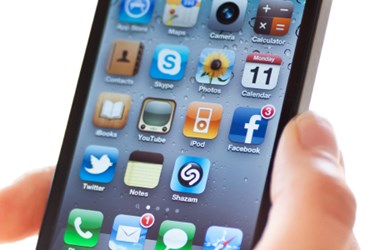How Apps Are Being Shadowed By Messaging
By Brian Heike, vice president of product and solutions, 3Cinteractive

Businesses have prioritized interacting with customers through mobile devices to create stronger relationships. They have even developed their own apps to better communicate with their customers as a personal touch. However, according to PC World, the amount of apps downloaded has decreased by 20 percent in 2016. Are consumers settling with the popular used social media apps and decreasing their need for other apps? On average, consumers hardly download even one app in a month’s time.
With apps losing their momentum, messaging has been holding its own through the newest form of messaging, Rich Communication Services (RCS). Through SMS, MMS, and OTT messaging, brands can achieve that personal touch of business-to-customer interactions with the help of device makers, carriers, and mobile developers.
Explaining RCS
The omni-presence of SMS and MMS found on almost every mobile phone combines with the rich instant messaging found in OTT platforms creating the ultimate messaging experience. RCS isn’t anything new though; consumers of smartphones have already been exposed to RCS, possibly without realizing it. Owners of the newest Samsung smartphone under the AT&T network can experience RCS at work with the read receipt feature, which indicates as someone is typing, and other person-to-person features. As RCS creates more convenient experiences for its consumers, it opens a better messaging world for businesses as well.
RCS Business Messaging has become the new face of customer interactions. Businesses have the capability of sending messages to their consumers that include photos, videos, and can receive a user’s location with permission. They can also include suggested responses and interactive widgets for businesses to choose how they should interact with the consumers.
With RCS in the global market, it’s necessary for different carriers to enable RCS for customers. To ensure all carriers support the RCS business messaging standard, the GSMA (organizer of Mobile World Congress), is expediting the priority of RCS.
RCS: An Apps Accessory
Though the activity in app downloading has declined, consumers have already adopted these mobile applications into their daily lifestyles. Apps are utilitarian and have aided consumers in performing tasks a couple decades ago thought impossible. But should consumers stay inside the app space? They are better off expanding outside of apps, not saying apps are unnecessary, but messaging will become an amplified version of itself with RCS.
Businesses will need to create unique customer experiences pertaining to their brand. A customer might be working on their backyard by a wall and curious to what specific flowers he/she can plant: they snap a photo including information on how much light that wall receives and the typical weather. That consumer then sends a MMS to the garden department at their local home improvement store and will receive suggestions. These suggestions can be viewed through the accompanying app where the customer can gather more information on the product, such as price and size. Based on the overall interaction, the satisfied customer can then order through their phone the suggested flowers and pick them up when ready. This payment method is commonly known as BOPUS, Buy Online Pick Up in Store.
With this omni-present RCS, tying messaging with apps will give businesses the “app-plus” advantage with their mobile customers.
About The Author: Brian Heikes is Vice President of Product and Solutions at 3Cinteractive. Through mobile marketing services, 3C deepens and extends the connection between customers and brands. For more information please visit www.3c.com.
